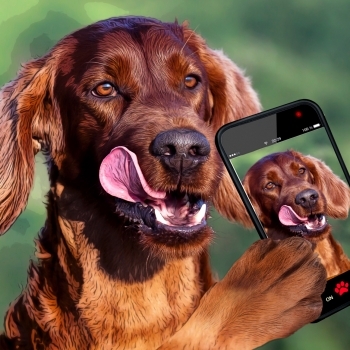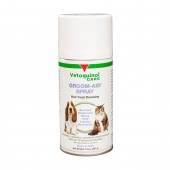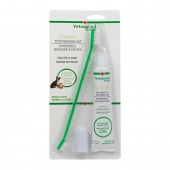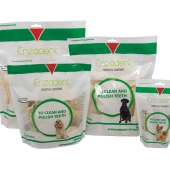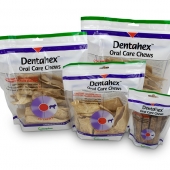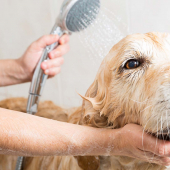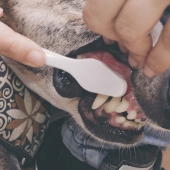When was the last time you took a good look inside your pet’s mouth? On average, more than 80% of dogs will develop a significant oral health issue, such as infected gums or loose teeth. Periodontal disease is the most common health problem diagnosed in cats.
Prevention and treatment of your pet’s oral issues are important for the overall health of your dog or cat. Here are some tips to keep your pet's teeth healthy:
- Tooth-Friendly Treats: Gnawing on certain treats and bones can actually help scrape away plaque and dirt on pets’ teeth (plus, it’s fun and tasty for your pet!) Be sure to consult with your veterinarian about chews and treats for your dog or cat. There are choices based on size of your pet and their oral health history
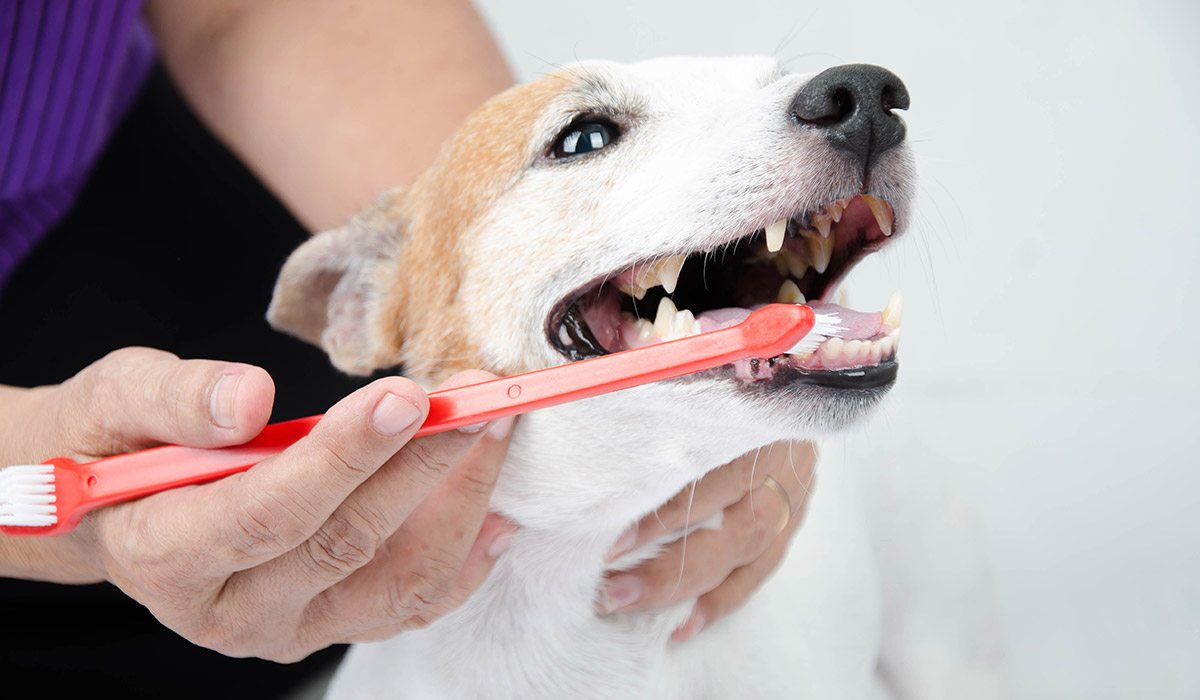
- Brush it Off: Like us, dogs and cats need their teeth brushed regularly. Make sure to use toothpaste specifically formulated for pets (do not use human toothpaste which requires rinsing/spitting out). Vetoquinol’s great-tasting, no-rinse toothpaste comes with a special finger brush and pet-friendly tooth brush in the Enzadent Complete Toothbrush Kit.
- Ease into Oral Health: If your dog or cat is not amenable to tooth brushing right away, although is open to you touching their mouth, start by getting them used to oral cleaning with a piece of gauze wrapped around your finger. Use it to wipe teeth and gums. Once they are used to that, begin to introduce actual teeth brushing with a pet-friendly toothbrush and toothpaste. Watch this instructional video: How To Brush Your Dog's Teeth
- Annual Checkup: Set up your pet’s annual dental check up at the same time you schedule your own. Routine annual checkups and preventative care can actually help prevent more serious issues that can be expensive to treat later on.
- Fear of the Dentist: If your dog or cat has a general fear of vet trips or dental checkups, consider Zylkene, a natural, non-sedating, calming supplement that can help dogs and cats cope with stressful situations. Start them on it about 4-5 days before the vet/dental visit.
- The Nose Knows: Bad breath in your pet is often a sign of an underlying oral health issue, such as an infection - pay attention to that smell. It can also be a symptom of broader health problems. If your dog starts developing bad breath, particularly if you are cleaning his teeth regularly, speak to your vet.

